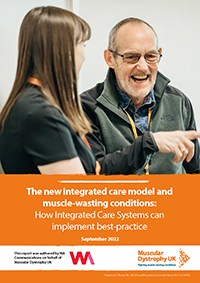Last week saw a busy few days at NHS Confed Expo 2025, with the overall mood across the board being one of cautious optimism. There’s no denying the scale of the challenges facing the health service, but what was obvious was a shared sense of collective will. Leaders and experts from different parts of the system all seem to agree that the NHS needs a new direction, and working together is the only way to get there.
Yet, under the surface of that optimism lies a degree of uncertainty. The much-anticipated 10-Year Health Plan (10YHP) still hasn’t been published, and it casts a long shadow. While everyone agrees that change is necessary, there’s still a sense that no one quite knows how we’re going to make it happen. As Jim Mackey noted in his keynote speech, public support for the NHS is waning and this may be the last chance to earn it back.
The promise of devolution
A few key themes unmistakably stood out throughout the conference – the first being devolution.
It’s becoming overwhelmingly clear that the NHS of the future will be far less centralised. Ten years from now, the role of central governance is likely to be significantly diminished. Instead, we’re seeing the increasing importance of NHS regions in overseeing provider performance.
Integrated Care Boards (ICBs) are also stepping into a more strategic role. They’re not only about strategic commissioning, but they are also evolving into guardians of population health, tasked with building neighbourhood-level health services tailored to local needs. This is more than a structural change, it signals a new way of thinking about accountability and responsiveness in the system.
Another standout conversation was around Foundation Trusts. The influence of Jim Mackey on Wes Streeting’s approach was clear. Trusts will be given the freedom to operate within a defined set of rules, but financial rewards will be closely tied to their ability to collaborate across the system and deliver on the so-called ‘left shift.’
Achieving the left shift
Another key theme was, unsurprisingly, prevention, which dominated discussions throughout the conference. Prevention will no longer be the responsibility of community providers and primary care. As many speakers put it, ‘prevention is everybody’s business.’
The left shift will not just be about moving services from hospitals into the community. Health leaders are increasingly aware that there will need to be a rethinking of how care is delivered, not just the setting where its delivered, but the model itself. There’s now an opportunity for health care leaders, and industry partners, to consider what care can look like if it’s designed around the needs of patients rather than settings. Again, the ‘how’ is still a little unclear, but the willingness to deliver seemed optimistic.
Partnering to deliver impact
A final theme to mention is partnerships. It’s clear that appetite for partnership working is growing, and crucially, it’s not just coming from industry. With capacity stretched and resources thin, there’s a pragmatic understanding that if industry can offer support, it has a legitimate role to play. The key will be ensuring that these partnerships are built on clear, shared objectives and a commitment to transparency.
Even historically sensitive topics, like Private Finance Initiatives (PFIs), are being re-examined. While there’s still wariness around private sector involvement, that caution is being offset by the need for investment and innovation. It’s likely we’ll see a reimagined approach to PFI, driven less by traditional Blairite ideology and more by necessity.
What comes next?
What’s clear from Expo is that there is appetite for change and the system is ready for reform.
But until the 10-Year Health Plan lands, we remain in a holding pattern. The document needs to do more than just set an operating framework. It needs to offer a compelling, cohesive vision for what the NHS can become, rooted in collaboration, shaped by local needs, and open to partnership.
And then the real challenge will begin in implementing the plan – our hope is that the openness to partnership remains, and we can work collaboratively across the system and life sciences industry to deliver real change and positively impact outcomes.

